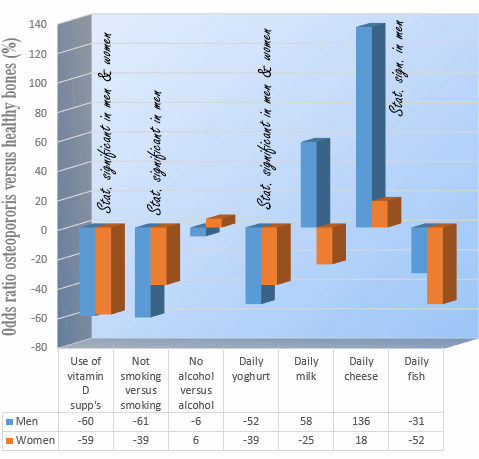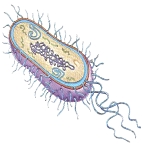|
Definition: "An ergogenic aid is any substance or phenomenon that enhances performance "
|
|
||||||||
23.08.2022 |
|
|
Milk may be a risk factor for depression, yogurt and kefir are not
A high intake of dairy may increase the risk of depression. At least, when it comes to non-fermented forms of dairy. Fermented dairy varieties such as yogurt, buttermilk and kefir actually lower the risk of depression.
Study
The men had kept a record of what they ate, on the basis of which the researchers determined their intake of dairy. They distinguished between non-fermented dairy, such as milk and custard, and fermented dairy, such as buttermilk, yogurt, kefir and cheese.
Based on their intake, the researchers divided the men into 3 groups or tertiles of approximately equal size. The men in the first tertile had the lowest intake, the men in the third tertile had the highest intake.
The researchers followed the men for 26 years. They had access to the men's medical records and could determine whether the men had been diagnosed with depression.
Results
The men with the highest intake of non-fermented dairy were twice as likely to have depression than the men with the lowest intake of non-fermented dairy. That difference was statistically significant.
The men with the highest intake of fermented dairy were 30 percent less likely to be diagnosed with depression than the men in the tertile with the lowest intake. You can see this above. The differences between the groups were not statistically significant.
When the researchers omitted cheese and only looked at other fermented dairy products, the protective effect of a high intake increased to 38 percent and was statistically significant.
Mechanism
Another suspect is the protein in dairy. Many cows produce the protein A1 beta casein. That protein changes in the body into the peptide beta-casomorphin-7 [BCM-7; structural formula below].
Some nutrition scientists suspect that BCM-7 may damage the brain. If they are right, then that problem hardly arises, if at all, with fermented dairy. The fermentation process cuts beta casein proteins into smaller pieces that can no longer act as a BCM-7 precursor.
Conclusion
"To confirm findings observed in this study, prospective studies that include repeated measures of diet and are conducted in different populations and sexes are required."
Source: More: Archives:
|
|
|||||||||||||||







